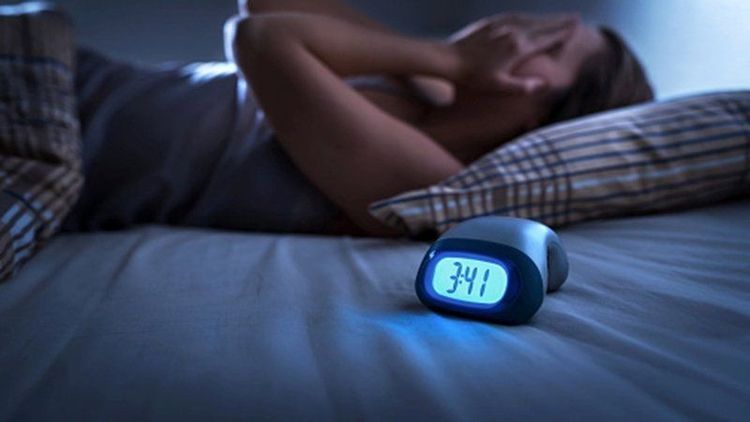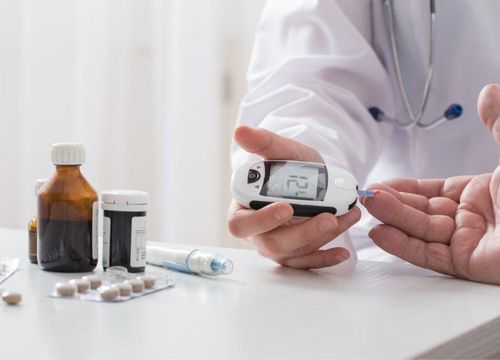1. How does diabetes affect sleep quality?
Diabetes makes it impossible for your body to produce the proper amount of insulin, which leads to an excess of glucose in the blood. There are three main types of diabetes: type 1 diabetes, type 2 diabetes, and gestational diabetes.
For type 1 diabetes, although your body still produces the normal amount of insulin hormone in the pancreas, you still need to add insulin to your body every day. Meanwhile, type 2 diabetes prevents the body from effectively using insulin to metabolize blood sugar.
The complications caused by diabetes will depend on how well the blood sugar is controlled in the cheeks. That is, the more closely you manage your diabetes, the lower your risk of complications from the disease will be. High blood sugar can cause some temporary symptoms, such as increased hunger, frequent thirst, and increased frequency of urination. However, most of these symptoms do not affect the quality of your sleep too much.
Some studies show that diabetes is closely related to diabetes or insomnia. This can be due to many different causes, including:
- High blood sugar causes increased frequency of urination at night and makes you often have to wake up to urinate, disrupting sleep.
- When there is too much glucose in the body, they will take water from the tissues and make you feel thirsty and have to wake up often to drink water at night.
- Symptoms of hypoglycemia, such as sweating, dizziness, or tremors, can also affect sleep quality at night.

2. Some Common Sleep Disorders Related to Diabetes
Lying around, constantly turning and tossing in bed every night is probably an extremely familiar part for people with diabetes. Although sleep disturbances can be caused by the effects of diabetes, in certain cases it can also be traced back to other medical conditions. According to research, diabetics often experience the following sleep disorders:
Sleep apnea
This is considered the most common sleep disorder in people with diabetes, especially type 2 diabetes. The main reason is that patients with this type of diabetes are often in the predisposed to being overweight and obese, which puts pressure on the airways. The main symptoms of sleep apnea often include daytime fatigue and loud snoring at night.
Restless Legs Syndrome
This syndrome involves your legs constantly wanting to move due to irritation. This tends to happen mainly at night or when your body is low in iron, making it difficult to fall asleep and stay asleep. People who are prone to restless legs syndrome, including people with diabetes, thyroid disorders or kidney problems.
Insomnia
This sleep disorder is common in people who have too much sugar in their blood or are under severe stress. Characteristic signs of insomnia often include being unable to fall asleep or finding it very difficult to fall asleep.
3. Sleep aids for diabetics
Currently, melatonin pills are considered as an effective solution to help you solve sleep problems. Melatonin is a hormone produced naturally in the body that helps control your sleep and wake cycles. Unlike insulin, melatonin is a synthetically produced and digestible hormone, so it has been made into a natural supplement in pill form available over the counter.
According to the American Diabetes Association, the use of melatonin can increase the body's insulin resistance. However, this still doesn't stop many people from using them as a remedy for sleep disorders. Many experts say that melatonin won't let you down like other sleep aids. It is even safe for children. You can start them with a 1mg dropper at bedtime and then gradually increase the dose as needed.
If melatonin doesn't work as you expected, you can use antihistamines containing diphenhydramine (found in Benadryl or a nighttime pain reliever like Advil PM). and Tylenol PM) or doxyalimine (found in Unisom over-the-counter sleep aid tablets).
Evidence on several online diabetes forums has shown that melatonin and antihistamines are the most common ways to help people with diabetes sleep or, in other words, treat insomnia. These drugs are also not so effective that it makes it difficult to wake up spontaneously in the event of an emergency or low blood sugar. Overnight hypoglycemia or unawareness of low blood sugar are top factors to watch out for. Experts recommend that you check your blood sugar before bed or wear a continuous blood glucose monitor (CGM) if you have the condition.

4. How to improve sleep in people with diabetes?
Different from diabetes, sleep a lot or people with diabetes sleep a lot. In the case of people with insomnia, patients with diabetes can follow some of the following methods to improve their sleep quality, including:
4.1 Limit the use of electronic devices before bedtime
You should not use devices with blue light at night before going to bed, such as phones or computers, because these devices can stimulate brain activity and make it difficult to walk sleep more. Instead, you can read a few pages of a paper book before bedtime to relax your mind and reduce eye strain.
4.2 Don't use alcohol before bed
Although having a glass of wine can make you feel more sleepy, consuming alcohol will make it difficult to sleep deeply and enough Okay.
4.3 Set a fixed bedtime
You should go to bed at a certain time of the day, even on weekends. Your body will reset your biological clock, helping you get used to it and fall asleep easier.
4.4 Don't take stimulants or be active at night
Drinking coffee or doing intense exercise at night can make it hard to sleep. Ideally, you should choose gentle relaxing physical exercises, such as yoga to stimulate the body to fall asleep more easily and sleep more deeply.
In addition to paying attention to lifestyle and daily activities, people with diabetes also need to maintain a healthy diet and perform regular health check-ups to check the progress of the disease. suitable adjustment.
Endocrinology - Vinmec International General Hospital has made many achievements in the treatment of diabetes, helping patients to stabilize their lives early and minimize complications caused by the disease. With a team of experienced Endocrinologists from many major hospitals across the country, they will directly participate in the examination and treatment process. Therefore, customers can be assured of service quality at Vinmec.
Currently, the hospital also has a screening package for diabetes and dyslipidemia for people at high risk of diabetes. With this package, the customer will have a specialist doctor to conduct blood tests, urine tests, cholesterol quantification... When the test results are available, the doctor will give appropriate advice and indications to the patient. each client's current health status.
Please dial HOTLINE for more information or register for an appointment HERE. Download MyVinmec app to make appointments faster and to manage your bookings easily.
Reference source: healthline.com













